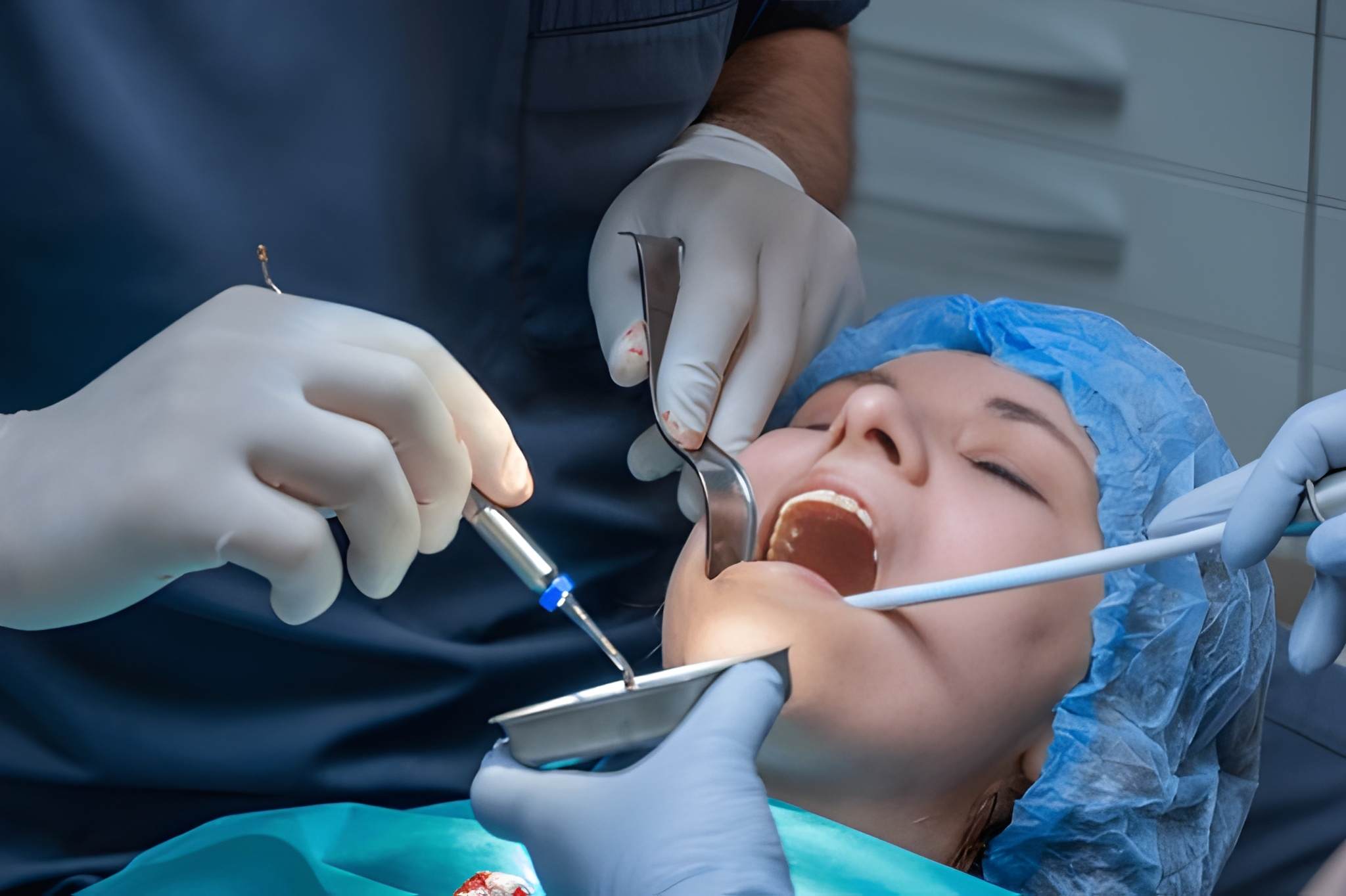In today’s hectic lifestyle, stress oral health issues have also become very prevalent. The pressures of contemporary living be it workplace pressure, financial woes, or personal problems can quietly wreak havoc not only on your mental health, but your smile as well. Most individuals realize how stress impact oral health and overall health, but few take note of how directly stress and mental well-being affect oral hygiene practices.
This complete guide investigates the intricate connection between stress oral health, the mental health contribution to a clean and healthy mouth, and preventing long-term dental problems. Whether you experience anxiety teeth grinding or encounter more frequent gum irritation, understanding this relationship is central to safeguarding your oral health.
The Hidden Connection: Stress Impact Oral Health and Mental Health
Psychological stress is not just a head event; it affects the whole body, including the mouth. Chronic or uncontrolled mental strain can affect behavioral habits like omitting oral hygiene practices or engaging in destructive habits like smoking or binge eating. These actions along with biological responses like hormonal imbalance can have a huge impact on your dental situation.
The main issue rests with the biochemical alterations stress causes. Increased levels of cortisol impair immune function, making it more difficult for the body to combat infections, such as gum infections. This leads us to one of the most significant issues: stress and gum disease.
Stress and Gum Disease: A Growing Concern
Stress and gum disease go hand in hand. When your immune system is weakened because of chronic stress, your gums are more open to bacteria and inflammation. Consequently, conditions such as gingivitis and periodontitis are more likely to emerge or become worse.
Additionally, stressed individuals tend to disregard oral care, miss dental visits, and develop unhealthy food habits. Caffeinated beverages and sweet foods, which are universally consumed during stressful times, create ideal breeding grounds for deleterious bacteria.
Clinical research has indicated that individuals who are under stress have high levels of inflammation markers in their gum tissues, causing more bleeding, swelling, and pain. These symptoms, if left untreated, can develop further and result in more advanced periodontal problems, ultimately causing tooth loss.
Anxiety and Teeth Grinding: A Vicious Cycle
Anxiety grinding of teeth is perhaps the most overt indicator of how emotional tension is expressed physically in the mouth. Medically referred to as bruxism, this is the act of clenching or grinding teeth, usually at night. Although it may appear to be an innocuous habit, habitual bruxism can contribute to:
- Weakening of teeth and erosion of enamel
- Sensitivity and pain in teeth
- Cracking and fracturing of teeth
- Headaches and facial muscle pain
- TMJ (temporomandibular joint) disorders
However, most individuals don’t know they have bruxism until their dentist discovers signs of wear during a routine check-up. Not only does it wear down the teeth, but the condition also feeds back into stress, creating a cycle of both physical and emotional tension.
The Role of Mental Health in Oral Hygiene
There is increasing evidence that mental health oral hygiene is closely linked. Those with anxiety, depression, or other mental health issues tend to have poorer oral health. It is not merely a reflection of neglect, but also due to changes in behavior and physiology.
For instance, depression may decrease the desire to carry out daily activities such as brushing and flossing. Some psychiatric drugs can lead to xerostomia, thereby decreasing saliva flow and making one vulnerable to stress-induced tooth decay.
Some of the most common symptoms manifested by people with impaired mental health that influence oral hygiene are:
- Unwillingness to practice hygiene
- Fatigue getting in the way of regular brushing/flossing
- Fear of dental procedures keeping them away from dental care
- Poor eating habits
- Substance use (such as smoking or alcohol)
Individuals with poor mental health are less likely to see a dentist on a regular basis and are more likely to have unmet oral health needs, according to recent research. This lack of care can exacerbate dental problems, which in turn impacts self-esteem and mental well-being, creating a vicious circle.
Stress Related Tooth Decay: How It Happens
Stress induced tooth decay happens more often than most are aware. Stress affects the production of saliva, which creates a condition known as xerostomia, or dry mouth. Saliva is a natural cleaner that helps to neutralize acids and remove food particles and bacteria.
When there is less saliva, the protective layer in the mouth loses strength. Acidic bacteria proliferate, a situation that is conducive to plaque formation and cavity development. Further, stressed people tend to reach for comfort foods, typically laden with sugar and carbohydrates, thus escalating the danger of decay.
In order to avoid stress-related tooth decay, one should:
- Drink plenty of water to keep the flow of saliva going
- Steer clear of sugary foods and acidic drinks
- Brush and floss frequently even when under intense stress
- Use fluoridated toothpaste to harden enamel
- Get professional cleanings and guidance from your dentist
Knowing the Signs: When Stress Is Affecting Teeth

Most people are not aware that their dental issues are related to emotional distress. Early detection of signs can enable you to take prompt action. Be aware of:
- Recurring jaw pain or waking up with headaches
- Greater tooth sensitivity or visible enamel erosion
- Bleeding gums after soft brushing
- Ongoing mouth ulcers or sores
- Persistent bad breath
- Avoidance of dental visits because of fear
If you observe any of these symptoms, then it might be time to analyze not only your oral hygiene routine, but also your mental and emotional state.
Stress Bruxism Prevention: What Can You Do?
Prevention of stress bruxism begins with knowing the causes. The good news is, both bruxism and overall stress-related oral problems can be effectively treated using the proper strategies.
Below are some methods:
Behavioral Approaches
Cognitive Behavioral Therapy (CBT): Assists in overcoming underlying causes of bruxism and behavioral habits.
Stress coping methods: Meditation, deep breathing, and progressive muscle relaxation.
Mindfulness activities: Assists in raising awareness and minimizing nocturnal grinding.
Dental Treatments:
Custom night guards: Protect teeth from grinding at night.
Orthodontic assessment: Correct misalignment that can aggravate bruxism.
Jaw exercises: Minimize facial muscle tension.
Lifestyle Changes:
- Avoid caffeine and alcohol consumption before going to bed
- Adhere to a regular sleep regimen
- Participate in physical activity to let loose pent-up stress
These techniques not only guard your teeth but also work towards general mental health.
Oral Hygiene Practices That Foster Mental Wellness
Similarly, just as bad mental health is associated with bad oral health, the opposite is also true: good dental practices can enhance your mental and emotional health.
A healthy mouth enhances self-esteem, alleviates pain, and lowers anxiety linked with dental procedures. Here’s how you can fortify your regimen:
- Brush twice daily for two minutes
- Floss once a day to clear plaque between teeth
- Use alcohol-free mouthwash
- Restrict sugary food and snacks
- Attend dental check-ups every 6 months
- Drink lots of water
Regular oral care is even more vital when you’re under stress.
Supporting Vulnerable Populations Post-Pandemic
The COVID-19 pandemic had a drastic impact on healthcare systems globally, including oral healthcare. Though everyone was impacted to a certain extent, vulnerable groups—e.g., low-income individuals, individuals with limited education, individuals with chronic diseases, or individuals with mental health issues—were impacted the most.
One of the most severe pandemic challenges was access to normal dental care. Dental offices were shut for weeks, elective surgeries were cancelled, and several individuals skipped visits out of concern for infection. All this created backlogs in preventive visits, allowing worsening untreated diseases such as cavities, gum disease, and infected teeth.
For those who were already financially strained, the pandemic just exacerbated those difficulties. Loss of jobs and decreased income made dental care unaffordable, particularly for the uninsured. Housing instability, such as evictions or multiple moves, also broke the continuity of care. People with poor mental health were especially impacted—they were more likely to miss dental visits, have dental pain, and have unmet oral health needs due to a lack of resources, motivation, or awareness.
The interconnection between oral health and mental health grew stronger at this period. Depression and anxiety not only affected oral health habits but also kept many from going in for treatment—even when it was critical.
To overcome these inequalities, dental treatment will have to go beyond clinical care. There needs to be a holistic strategy with community outreach, patient education, and affordable and accessible dental care. These priorities guarantee that the most vulnerable receive necessary care. By enhancing systems of support and oral health equity, we can more effectively safeguard these populations and mitigate the long-term impact of the pandemic on their oral and overall wellbeing.
Conclusion: Care for Both Mind and Mouth
Your mind and your mouth are inextricably linked. From anxiety tooth grinding to stress-related tooth decay, untreated stress and mental health concerns can significantly undermine your oral health. The solution is in proactive stress management, preventive dental care, and emotional self-compassion.
Here at Dental Scotland, we recognize the value of treating the entire individual—not only the teeth. That’s why we provide such a comprehensive list of services such as:
- General NHS Dentistry
- Cosmetic procedures like Invisalign and composite bonding
- Teeth whitening treatments
- Dental implants for smile rehabilitation
- Preventive care and checkups
By providing NHS and private care, we enable patients of all backgrounds to make their oral health a priority, even at stressful moments. Whether you’re noticing signs of stress oral health or just want to fortify your smile and mental resilience, schedule an appointment with one of our specialist clinicians today.
Working together, we can save your teeth, boost your confidence, and give back your peace of mind, one smile at a time.





